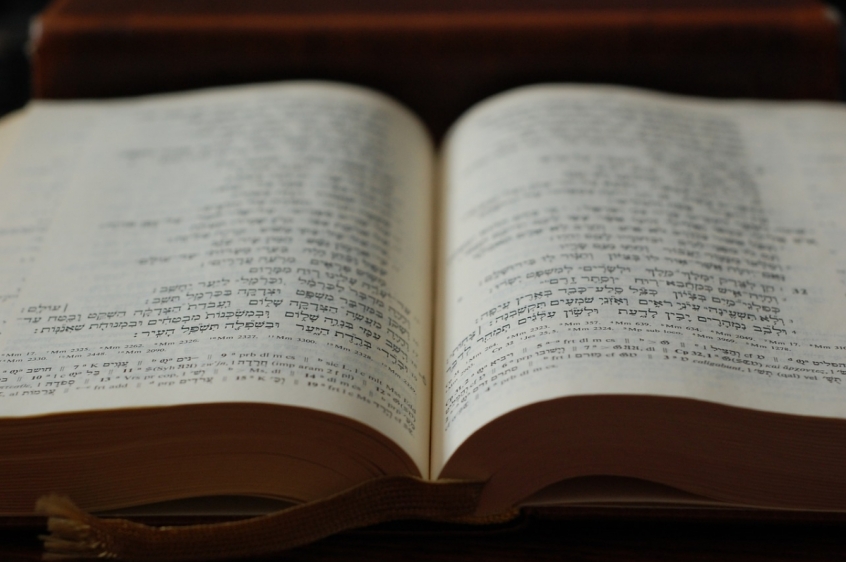'Pele' was pretty upset. A young lady with a serious drug problem, she had started attending church and found herself strangely moved by the experience. So she came to see me and asked if I could give her a book of the Bible to read. For some reason I gave her a copy of the small book of Ecclesiastes. She came back a week later and excitedly exclaimed, 'That's amazing...I canna believe that's in the Bible...that was like Kurt Cobain on speed!'
Since then I have come to the conclusion that for today's Western post-moderns, Ecclesiastes is the perfect Gospel to introduce them to Christ. Over the next few weeks I will be taking a look at different parts of this fascinating, insightful and difficult poetic book.

Let's begin at the beginning and look at the first 11 verses of chapter one. This is a book written by someone who is called the Teacher. It is mainly written by Solomon – or someone in the Solomonic tradition. The book is called Ecclesiastes because it means 'assembly'; it is the word from which we get 'ecclesiastical' or church. It is a gathering of people who want to listen to the wisdom of the teacher.
That wisdom tells us first of all that everything is meaningless or 'vanity'. The word 'meaningless' appears over 35 times in the book. The rich get richer, the poor get poorer. Evil people prosper, tyrants reign, disease spreads, everyone dies and turns to dust, life is unfair, nothing makes sense, the whole world is twisted. Eat, drink and be merry. What is the point of working hard? We all die in the end.
What is such a book doing in the Bible? There was an ancient school of literature that was known as the Pessimistic school. In the Dialogue of Pessimism (a Babylonian work of the 14th century BC) suicide is the only answer to the problem of life. In the Epic of Gilgamesh the god Shamash states bluntly: 'The life you pursue you shall not find.' There is a school of writing today which also reflects that viewpoint, represented by Jean-Paul Sartre, Albert Camus and Friedrich Nietzsche. Ecclesiastes belongs to this school, yet it has a very different conclusion and meaning. In fact there is a great deal of joy in Ecclesiastes. Not the kind of joy that is brought about by ignorance – just ignore it and it will go away. No: this is a book that faces up squarely to the reality of life but does not result in despair. Sometimes it seems as though we are only presented with two choices in life – either face up to life with all its bleakness, horror and meaninglessness, or escape into a world of illusion and false hope.
It could be that the Teacher is challenging us – asking us to think through our position to the bitter end. It is a challenge to the secularist. The Teacher burns at the injustices and wrongs in life, he mourns the passing of youth and the inevitability of death, but he looks for something more. This is a great starting point for Christians in our dialogue with non-Christians.
There is nothing new under the sun, whether it's people in positions of power misusing that power or indeed anything else in today's news. The word 'hebel', meaningless, is used 39 times in the book. It means brief, insubstantial –froth. Empty, Unreliable. Frail. Futile. Lack of discernible purpose. Absurd. The word is related to wind and mist and is used for things that do not last, cannot be grasped or are not worthwhile. A breath. That is what human life is like or feels like. So much of existentialist literature reflects that. Philip Yancy talks about 'flat emotions, a radical indifference to others, the sensation of drifting, numbness to pain, a resigned acceptance of a world gone mad'.
All things are wearisome. Life is toil. And at the end there is a big fat zero. Nature goes on forever but humans grow weary, stumble and fall. We are always worn out, exhausted. There is no real progress. The Beatles sang about 'All the lonely people' For me, I see lots of tired people. How are you? FINE. Frustrated, Insecure, Neurotic and Exhausted.
Welcome to the modern world.
And this is where the Good News of Jesus comes in. Come to me all who are weary and burdened and I will give you rest! As for those who are smug and self-satisfied – the words of Job are apposite. 'They spend their years in prosperity and go down to the grave in peace. Yet they say to God, "Leave us alone! We have no desire to know your ways. Who is the Almighty, that we should serve him? What would we gain by praying to him?"' (21: 13-15)
The key to understanding Ecclesiastes is the key to understanding life. We need to grasp what 'under the sun' means. If there is only that which is under the sun, only the material, only that which our physical senses can experience, then at the end of the day the existentialist philosophers are right – everything is meaningless and nothing matters. Suicide is painless.
But Christ is Lord. Jesus has risen. And because there is one who is not 'under the sun' but Lord of it, then everything and everyone has meaning. As GK Chesterton pointed out: 'All men matter. You matter. I matter. It's the hardest thing in theology to believe.'
But it is what Jesus teaches us.
David Robertson is Associate Director of Solas CPC in Dundee and minister at St Peter's Free Church. Follow him on Twitter @TheWeeFlea.













